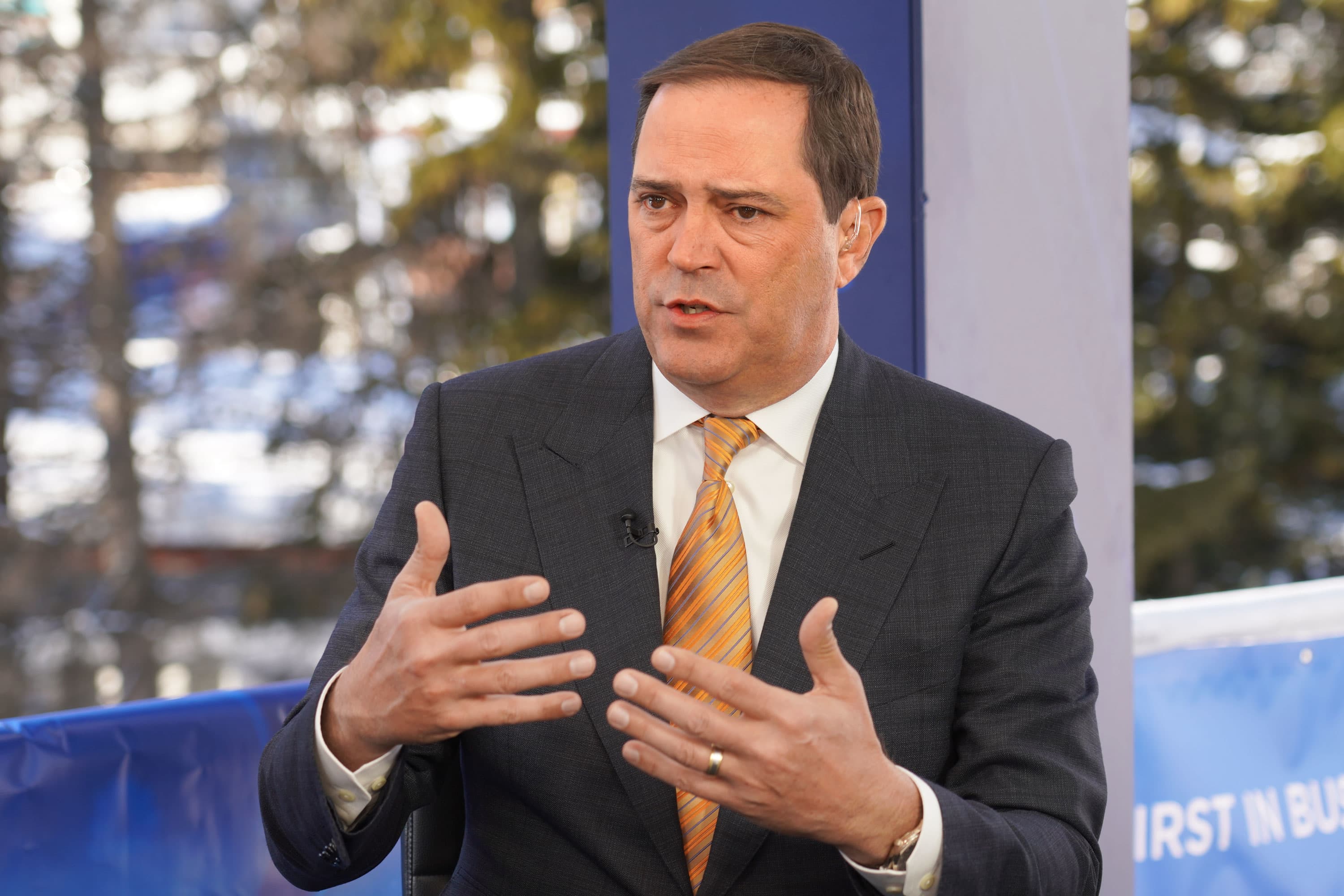Chuck Robbins, CEO, Cisco Systems, speaking at the World Economic Forum, Davos, Switzerland, January 21, 2020.
Adam Galica | CNBC
Cisco shares rose as much as 4% and later lost some of their gains in extended trading Wednesday after the company reported better-than-expected fiscal third-quarter earnings. Revenue dropped 8% from last year’s quarter, steeper than the 4% decline in the prior quarter.
Here’s how the company did:
- Earnings: 79 cents per share, adjusted
- Revenue: $11.98 billion
Analysts polled by Refinitiv had expected 69 cents in adjusted earnings per share on $11.70 billion in revenue for the quarter, which ended on April 25. Comparing results with estimates is not straightforward given the unpredictable impact of the coronavirus during the quarter.
Cisco’s largest segment, Infrastructure Platforms, which includes networking switches and routers for corporate data centers, produced $6.43 billion in revenue, down 15% year over year and below the $6.83 billion consensus among analysts surveyed by FactSet.
In the quarter Cisco saw “manufacturing challenges and component constraints,” finance chief Kelly Kramer told analysts on a conference call on Wednesday. She said the pace of product orders slowed down in April.
The Applications segment, which contains among other things the Webex video-calling service, did $1.36 billion in revenue down 5% year over year and lower than the $1.43 billion FactSet consensus.
Cisco has “added many new prospects through free WebEx trials that we anticipate converting to revenue in the future,” CEO Chuck Robbins said on the conference call. He said in April there were over 500 million Webex meeting participants.
With respect to guidance, Cisco said it’s expecting 72 cents to 74 cents in adjusted earnings per share and a 8.5% to 11.5% decline in revenue for the fiscal fourth quarter. Analysts polled by Refinitiv had expected earnings of 69 cents per share on an adjusted basis and $11.82 billion in revenue, which implies a 12% decline.
Robbins suggested that business from companies operating large data centers could stand to grow.
“I guess the good news is that the success we’ve seen in the webscale space the last two quarters hasn’t even seen the impact of the 8000 [router line] yet, so it’s in trials in lots of customers still,” he said. “They have very extended evaluation periods before they deploy but I will tell you it’s doing incredibly well in those trials.”
In the fiscal third quarter Cisco said it would allow deferrals of payments on new orders to help customers whose finances have been affected by Covid-19. The company also said it planned to acquire wireless backhaul company Fluidmesh Networks for an undisclosed sum.
KeyBanc analysts led by Alex Kurtz lowered their rating to the equivalent of hold from the equivalent of buy last month, suggesting that customers that would ordinarily be focused on buying modern Cisco networking switches were turning their focus to technologies for remote work.
“Our partner discussions highlighted the ongoing importance of CAT9K, but we believe the big first wave of upgrades may have likely occurred over the last 24 months and that we might be moving to a more moderated refresh growth rate over a longer period,” the analysts wrote.
Cisco shares were down 13% since the beginning of the year prior to the after-market move.
WATCH: Cisco CEO Chuck Robbins on how the private sector can help during the coronavirus crisis
